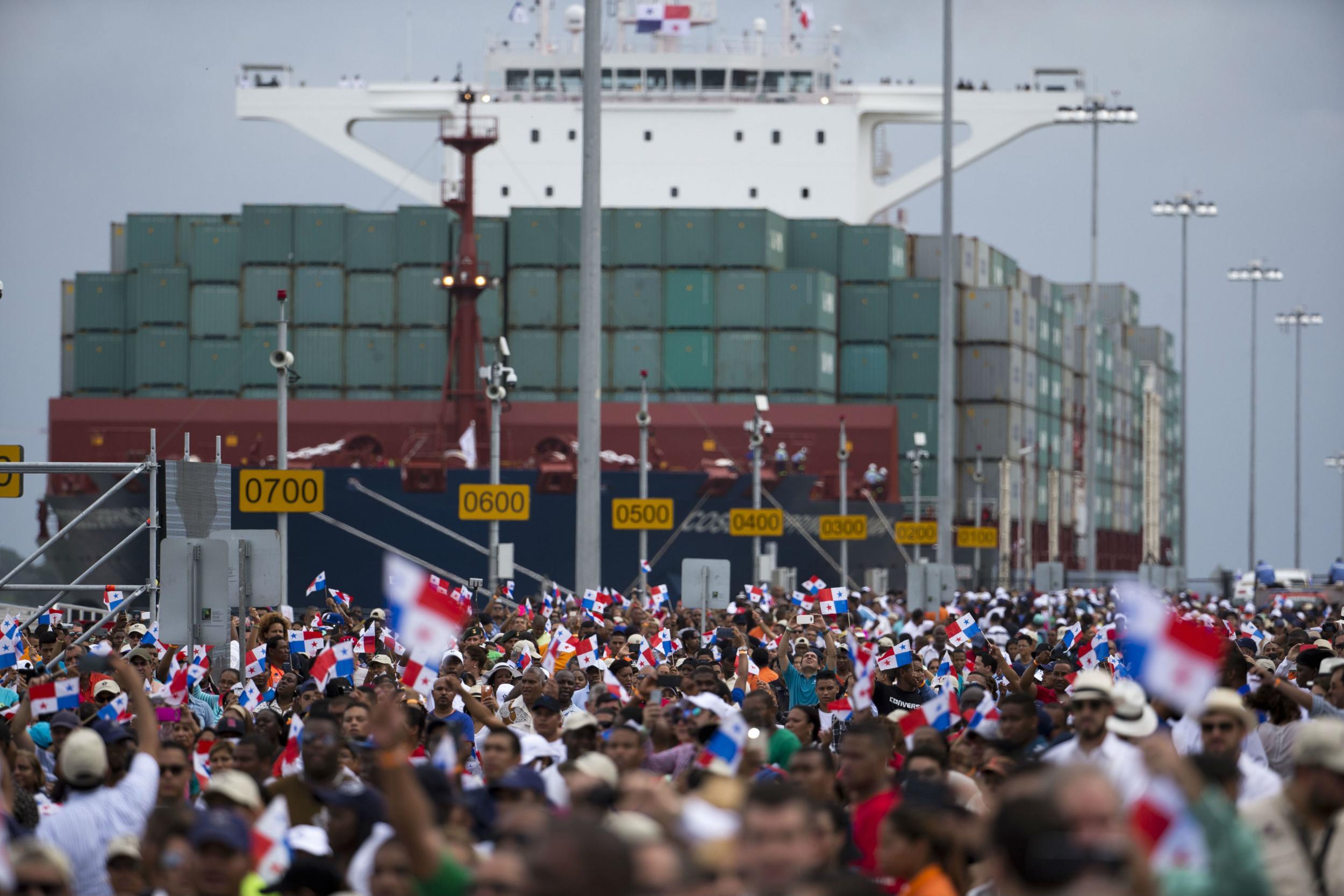Amidst doubts and muted festivities, Panama inaugurates its expanded canal
The weekend festivites were clouded by fall-out from the 'Panama Papers' scandal

Two years behind schedule and amid an ominous slow-down in international shipping, the newly expanded Panama Canal has finally opened for business, though celebrations were muted.
Only eight heads of government were on hand even though dozens had been invited for the inauguration, while other countries sent less senior representatives, possibly in part because of the recent tarnishing of the country’s reputation by the leaking of the so-called ‘Panama Papers’.
The United States, which finished cutting the canal through the isthmus in 1914 and only handed over control of it to the Panamanian government in 1999, was represented by Jill Biden, the wife of vice-president Joe Biden. The US is the canal’s biggest customer ahead of China.
“This is the route that unites the world,” Panamanian president Juan Carlos Varela declared proudly. The expansion, completed by a consortium led by Spain's Sacyr and Italy's Salini Impregilo, cost the tiny country $5.4bn. Before the expansion it was generating about $10bn a year, representing two fifths of the national GDP.
Thousands looked on early on Sunday morning as a giant container ship from China, the ‘Cosco Shipping Panama’, nosed into the first set of new locks on the Atlantic end of the canal under lowering skies, with a small band playing assorted patriotic tunes. The vessel was expected to emerge at the Pacific end later in the day after making the roughly 50-mile canal journey.
The new locks enable the canal to accommodate mega-ships carrying three times as many containers as was possible before. Roughly 98 per cent of all vessels of the world will now be able to navigate it. The Chinese ship that made the inaugural trip on Sunday was 158ft across and almost 1,000ft long.
“There is evidence that the Panama Canal, with this expansion, is an important player not only for regional maritime commerce but worldwide,” said Oscar Bazan, a vice-president of the Panama Canal Authority. ”The canal is a winning bet. [Clients] will benefit from saving not only time but also money, because the canal is a route that shortens distance.“
Originally set for completion in 2014, the expanded canal has now opened at a time when the outlook for shipping has been dimming, notably because of the fall in oil prices and the slowdown in China’s economic expansion and consumption of commodities.
For example, cargo volume from ports in the eastern US to Asia, most of it transiting the canal, fell by 10 per cent last year alone. Meanwhile the the Suez Canal in Egypt has been forced to lower its tariffs by as much as 65 per cent on large container vessels to try to maintain traffic.
“It's important to remember that the canal does not create demand. The canal opens the route. Supply and demand on a world level is what will decide whether the Panama Canal will really bring more volume or not,“ Antonio Dominguez, a general manager for the Maersk Line, told the Associated Press. ”What is certain is that the current canal has maxed out.“
There is also concern that many of the US ports that could benefit from the impact of the new canal are for the moment unable to handle some of the largest ships that can now pass through it.
Meanwhile, Panama is still contending with the hangover created by the "Panama Papers" scandal set off by the leaking of internal documents from the law firm Mossack Fonseca, revealing how it helped some of the world's richest people use offshore shell companies to avoid tax and launder money.
Another cloud was the apparent determination of Nicaragua to cut its own canal to compete with Panama. A joint agreement was struck between President Daniel Ortega and the Chinese telecoms billionaire, Wang Jing, for its construction.
The first major excavation work on the Nicaragua canal was delayed and is now meant to begin at the end of this year, but the Nicaraguan government has been notably coy about the status of the project and some wonder if it will ever happen. It has meanwhile stirred fierce opposition from environmental groups as well as residents and farmers who face being displaced by it.
Subscribe to Independent Premium to bookmark this article
Want to bookmark your favourite articles and stories to read or reference later? Start your Independent Premium subscription today.

Join our commenting forum
Join thought-provoking conversations, follow other Independent readers and see their replies